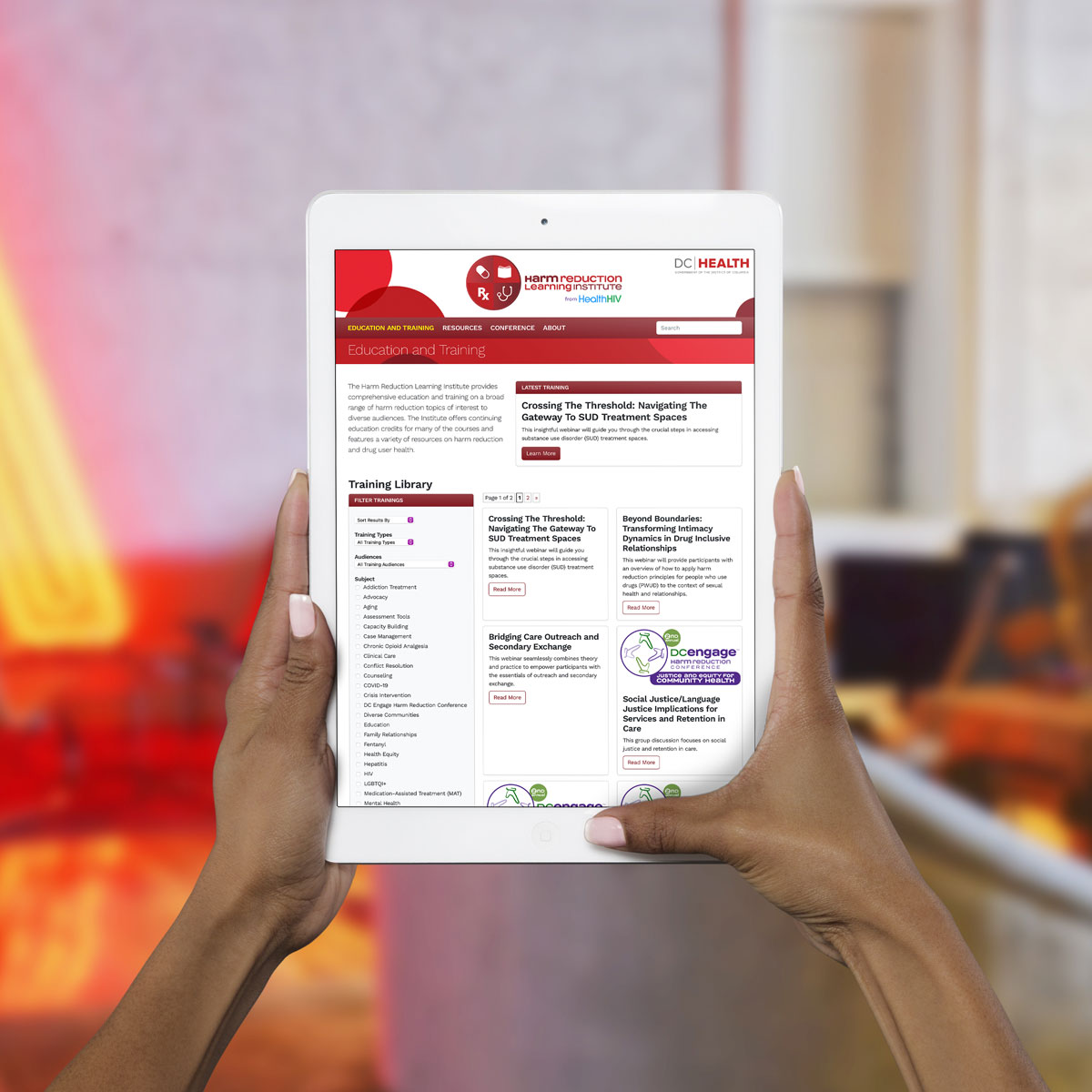The Harm Reduction Learning Institute – reduceharmdc.org – offers providers, community leaders, and other harm reductionists free education and training covering key topics from naloxone administration and overdose response to stigma reduction and community outreach.

Your Online Resource for Harm Reduction Education and Training
The Institute features a comprehensive substantive curriculum designed to address the complex challenges surrounding substance use. These courses offer comprehensive, innovative insights and evidence-based practices that reflect the evolving landscape of harm reduction, including:
- Harm reduction strategies for diverse populations,
- Facilitating a healthy and productive patient-provider relationship, and
- Opioid use and how to prevent or treat overdoses.
Latest Trainings
-
Comprehensive, Evidence-Based, Consensus Guidelines for Prescription of Opioids for Chronic Non-Cancer Pain from the American Society of Interventional Pain Physicians (ASIPP)
This webinar offers a focused overview of the 2023 Clinical Practice Guidelines from the American Society of Interventional Pain Physicians (ASIPP), highlighting evidence-based strategies for prescribing opioids to manage chronic non-cancer pain.
Latest Resources
-
Community Mapping and Identifying Priority Populations for HIV Prevention and Care
This 2023 Community Mapping Toolkit for D.C. Organizations details how visualizing health disparities can help outreach programs for HIV prevention. The toolkit explores how community mapping can support your work, what goes into creating a community map, and how to use mapping tools that are available online.
-
TIP 63: Medications for Opioid Use Disorder
This Treatment Improvement Protocol (TIP) reviews the use of the three Food and Drug Administration (FDA)-approved medications used to treat OUD—methadone, naltrexone, and buprenorphine—and the other strategies and services needed to support recovery for people with OUD.
-
The Opioid Crisis and the Black/African American Population: An Urgent Issue
This issue brief presents recent data on prevalence of opioid misuse and death rates in the Black/AA population; contextual factors & challenges to prevention & treatment; innovative outreach & engagement strategies to connect people to evidence-based treatment; and the importance of community voice.
